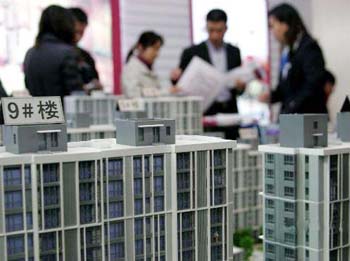| Tools: Save | Print | " target="_blank" class="style1">E-mail | Most Read |
| Population Change May Lead to Drop in House Prices |
| Adjust font size: |
|
A home, even the smallest flat, is the dream of tired people of all ages after a long and hard day's work. At the most basic of levels it's a shelter where people can be warm, safe and relax after a tough day at their places of employment. But just as importantly it's somewhere which can be called "home". In cities an apartment becomes the stuff dreams are made of. Many fierce arguments have erupted and views
expressed about whether or not the overheating Chinese housing
market would chill somewhat after 2008. Yin Zhongli, expert from
the Institute of Finance and Banking under the Chinese Academy of
Social Sciences, has suggested that prices will drop because of
changes to the structure of the population.?
Chinese people observe that "when people get married, a house is needed" and there isn't a more accurate saying. People aged from 25 to 35 are in "the golden season of marriage" and right at the top of their wish lists is a home of their own. This ongoing demand continues to stimulate the housing market boom. In fact, China's birth rate, which peaked around 1965, has an influence on the current demand, according to Yin. In 1962 the birthrate was 3.71 percent; in 1965 it stood at 3.78 percent and in 1970 it was 3.34 percent. Only after 1978 did the figure drop significantly to 2 percent. Therefore many people born during the two decades after 1960 were doing the same thing around 2000 – getting married and looking to purchase their own homes. After 2008 these people will have all been over 30 and the majority will have been married. The house purchase peak will pass at the same time. According to an analysis, the number of marriages is likely to fall dramatically by 30 percent. House prices are dictated by market demand. With the changes in population structure it seems that the current boom could no longer last after 2008. Of course, many other factors, including urbanization and economic development, also influence China's real state market, Yin said. In order to avoid the negative impact caused by population change, accelerating the pace of urbanization requires to be given priority consideration, he added. (China.org.cn by Wang Ke, August 22, 2006) |
| Tools: Save | Print | " target="_blank" class="style1">E-mail | Most Read |
 |
| Related Stories |

